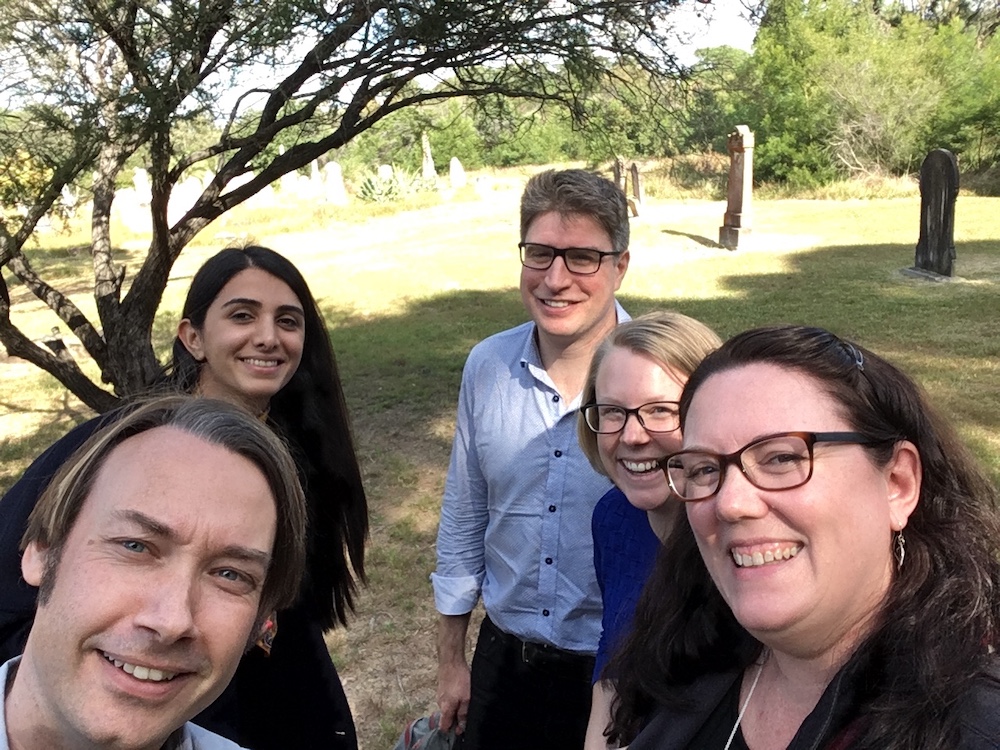The CLEX Knowledge Brokerage Team (KBT) is now well and truly bedded down after coming into existence in October 2018. Team leader Ian Macadam has visited each of the CLEX university nodes and has attempted to answer the question on everyone’s lips “So what is a knowledge broker anyway?”. If you are still in doubt or would like to talk about communicating your work to government, businesses or schools, Ian would be happy to hear from you via i.macadam@unsw.edu.au.
Team member James Goldie continues to support both CLEX and the Monash Climate Change Communications Research Hub through a joint position between the two organisations. James’s work for CLEX has focused on creating a revamped CLIMDEX website to deliver data on extreme climate indices. As work builds on the IPCC’s Sixth Assessment Report, the website is entering an internal testing phase. He has also been doing sterling work with Ailie Gallant, Zoe Gillett and Hub staff streamlining the software that the Hub uses to produce graphics on the climate for TV news weather segments. The first segments using the new software were broadcast in Melbourne in July on Seven Network Melbourne and ABC Victoria.
A recent achievement of the KBT relates to the WeatheX citizen science mobile phone app (see https://climateextremes.org.au/weathex/). The development of the app, which allows the public to report and photograph hail, strong wind, tornado and flooding events, was led by Monash University’s Joshua Soderholm. A burst of activity by the KBT has put further development of the app on a firm footing. Research, weather forecasting and insurance organisations have now all expressed an interest in supporting the app and, thanks to James’s efforts demonstrating the app to academic and industry figures at the AMOS Annual Meeting in Darwin in June, the app continues to attract attention from potential users.

Supported by the KBT, CLEX’s relationship with NSW Government continues to flourish. CLEX researchers visited NSW Government’s Lidcombe labs in western Sydney in May to discuss common interests in urban climate and to share knowledge about relevant datasets and modelling techniques. CLEXers came away especially impressed by NSW Government’s observational datasets, including the meteorological observations taken by its air quality monitoring (see https://www.environment.nsw.gov.au/topics/air/monitoring-air-quality). The KBT will be working to build closer links with other Australian governments over the coming year.
CLEX continues to increase its engagement with the private sector. By way of example, CLEX has hosted staff from the insurance company IAG on several occasions. Most recently, Bruce Buckley, IAG’s Principal Research Analyst for Climate, led a seminar and discussion on the climate science needs of the company, which was attended by representatives of some of our key partners, including the National Environmental Science Program (NESP) Earth Systems and Climate Change Hub. James also worked with representatives from NESP, Melbourne University, and CLEX to facilitate a professional development workshop at this year’s Winter School on targeted communications.
The KBT runs a series of short briefing notes designed to inform governments and business about relevant developments in the science of climate extremes ( see here ). The series has expanded in recent months with the addition of notes on work led by Mandy Freund on a 400-year-long record of El Niño events and on the impacts and causes of the extreme rainfall event that hit Queensland at the beginning of the year. As always, the team welcomes feedback on these notes, and ideas for future notes.
